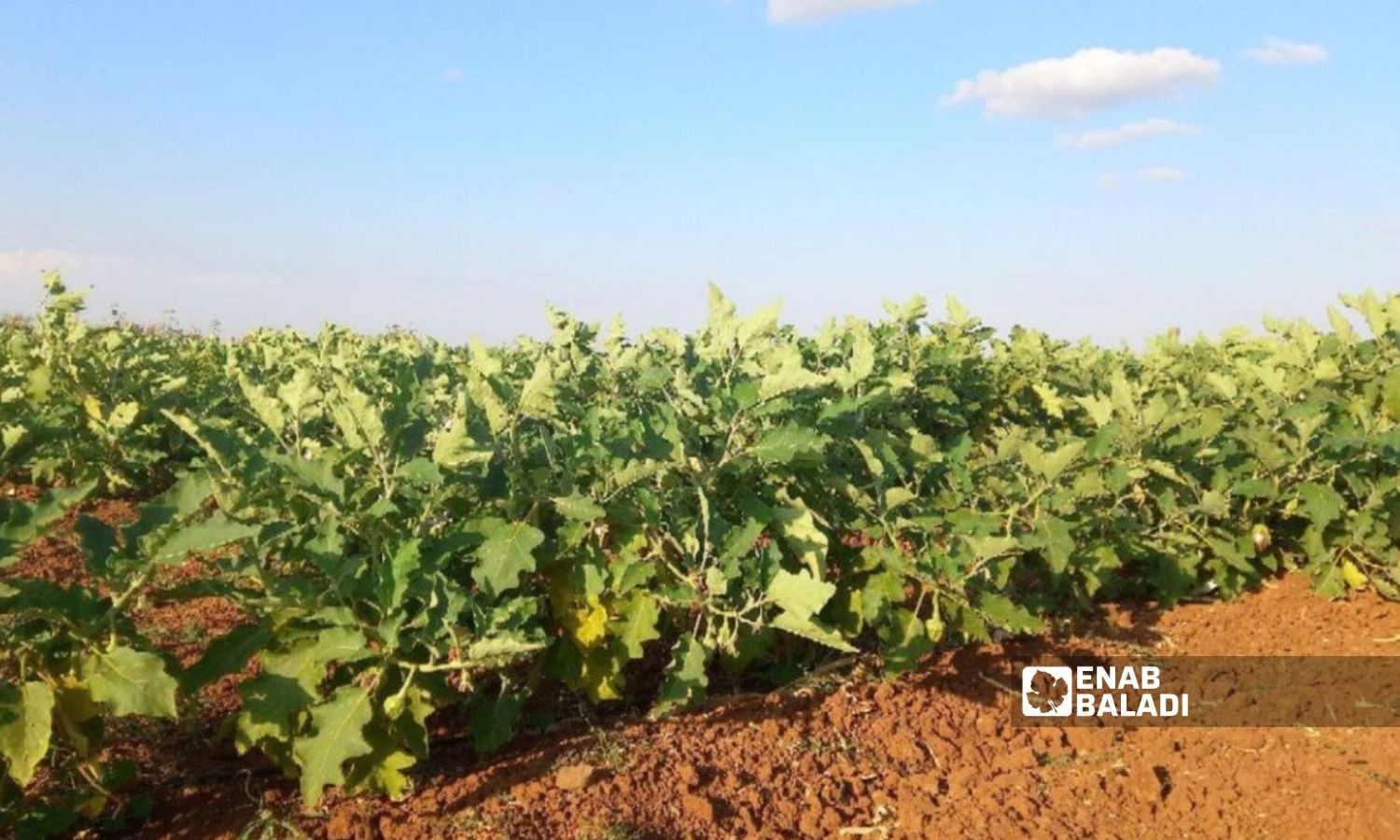



Enab Baladi – Halim Muhammad
The Syrian Agricultural Bank’s decision last August to stop selling fertilizers to farmers at the subsidized price, and selling them at the price popular in the local market, led to an increase in the prices of agricultural fertilizers in the southern governorate of Daraa.
The decision opened the door for traders to be the main supplier of the material, with the complete absence of the role of agricultural associations and banks.
Hussein, 27, who owns 20 dunums (20,000 m2) of the pomegranate crop, told Enab Baladi that merchants have become the main supplier of the material, and they are now controlling the prices of fertilizers, which made him stop fertilizing his crop as usual due to the high cost of fertilizers.
The farmer added that this had an impact on the yield in terms of production and the quality of the fruits.
The Syrian regime’s Agriculture Ministry raised the price of urea fertilizer distributed through the agricultural associations affiliated with the Union of Peasants from 1.3 to 2.4 million pounds per ton and ammonium nitrate fertilizer 26% to about 1.5 million pounds.
While the price of a bag of urea fertilizer (50 kilograms) reached 210,000 Syrian pounds, and a bag of ammonium nitrate (50 kg) reached 150,000 pounds in the local market, according to what Enab Baladi monitored.
The Minister of Economy in the opposition’s Syrian Interim Government (SIG), Abdul Hakim al-Masry, told Enab Baladi that the regime’s government prevented traders from importing fertilizers at the official exchange rate, which means increasing import costs for them.
Al-Masry added that the importer is now bringing his goods of fertilizers and agricultural medicines at the dollar exchange rate on the black market, which prompts traders to raise the price of the material according to supply and demand, and thus the impact is greater on the farmer after the increase in the cost of production.
Syria is primarily a fertilizer-producing country, but Russia’s control of the largest fertilizer plants has made it an “importing” country for the material, according to al-Masry.
Russian companies took control of the phosphate fields and the fertilizer plant in Homs after the Syrian People’s Assembly approved, on 6 February 2019, the draft law signed between the General Organization for Chemical Industries and the Russian STG Engineering company to invest in the General Fertilizer Company plant in Homs.
Muhammad, 65, did not plant summer crops for the current year in the western countryside of Daraa for fear of possible losses after the increase in production costs, including the increase in fertilizer prices. Muhammad was content to take care of his pomegranate and olive crops without fertilizing as usual during the past years.
The farmer (who reserved his full name for security reasons) told Enab Baladi that during the past years, the agricultural associations were creating a balance in the prices of fertilizers, selling them at a subsidized price, and satisfying some of the farmers’ needs, but they did not distribute the fertilizers since the winter of last season to all farmers, and the delivery of fertilizers was limited to wheat farmers only.
The superphosphate fertilizer has not been distributed for about two years, and fertilizers have not been distributed for summer crops, whether from fruits or plants, for about two years as well.
Muhammad believes that fertilizers have reduced the farmer’s profits, as the quality of the product cannot be improved without fertilizers, and at the same time, their prices have reached “stressful” levels for the farmer.
The majority of farmers in Daraa depend on dealing with agricultural pharmacies to obtain fertilizers and medicines, provided that the bills are paid by the farmer after selling the crop. However, this summer, most pharmacies refrained from providing farmers with fertilizers on credit and stipulated that they should be paid directly due to the constant change in their prices.
An agricultural engineer and owner of an agricultural pharmacy in Daraa countryside told Enab Baladi that the fluctuations in exchange rates and the high cost of fertilizers prompted him not to sell them to farmers on credit and to sell according to their daily price for fear of expected losses as a result of the continuous increase in the price of fertilizers.
Muhammad told Enab Baladi that fertilizers are the food of the land, whether they are chemical or organic, and the issue of reduced fertilization of the land may lead to “stunting” in vegetable and fruit crops.
In turn, the owner of the agricultural pharmacy (who declined to be named for security reasons) said that fertilizers play a major role in diversifying the necessary elements of the soil, and thus the deficiency in them is reflected in the quality and production of plants, as fertilizers enrich the soil with the necessary elements of minerals.
He added that the urea fertilizer gives nitrogen, which helps the vegetative growth of the plant, while the superphosphate enriches the earth with phosphorus, which is necessary for the flowering of plants, as well as potassium and others, which is reflected in the quality and freshness of the fruit.
Each stage of the season has specific types of fertilizer, as superphosphate is given during planting or the beginning of the season of vegetative trees, while some farmers rely on the balanced, water-soluble fertilizer at the beginning of plant production, and some of them give high potassium fertilizer during the harvest period.
Over the past years, some farmers have resorted to relying on organic fertilizers, such as chicken and cow waste, but they do not replace the use of chemical fertilizers, according to the agricultural engineer.
if you think the article contain wrong information or you have additional details Send Correction